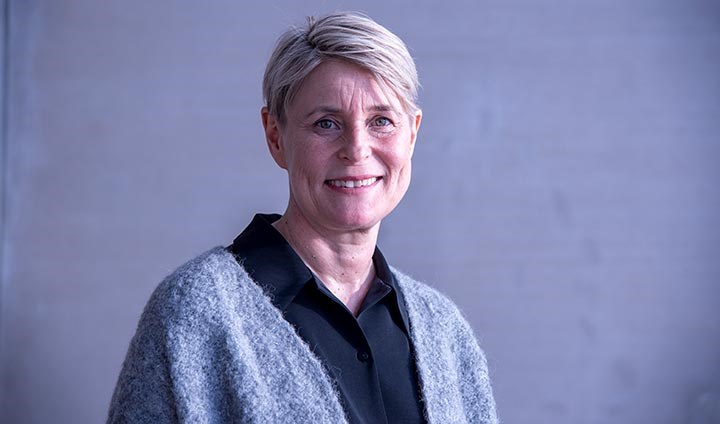Maria Jansson - new professor 2021

Maria Jansson is professor of gender studies and researches women’s conditions in society and how they are affected by politics and women’s own political actions. Her research shows that regulations impact everything from breastfeeding to gender equality in the Swedish film industry.
Facts:
1968 Born in Stockholm
2001 Obtained her PhD in political science with her thesis The twofold labour of life: on motherhood and work
2016 Associate Professor of political science at Stockholm University
2020 Professor of gender studies at Örebro University
The intersection of public and private, central in feminist theory, has been the focus of several research projects.
“I think an exciting example is breastfeeding. It’s very intimate and embodied, while at the same time, there are many guidelines and recommendations for how breastfeeding should be practised, even at the international level. It’s interesting when governments and public authorities regulate something designated as private. Doing so creates a duality, which can lead to restrictions on women’s capacity for action.”
The global rules supported by the World Health Organization (WHO) and UNICEF have inspired local regulations, not the least in Sweden.
“These recommendations place a great responsibility on mothers and inform about the dangers and benefits of breastfeeding. But they do not consider the practical circumstances in which mothers live, which can lead to feelings of guilt.”
Boundaries between public and private
For some twenty years ago, her doctoral thesis was about the problematic boundaries between public and private.
She studied childminders and how politicians, employers, and unions discussed and regulated their work between 1967 and 1999. Childminders long served as a squeezebox as more and more women worked outside the home, but the lack of preschool places was critical. These women were seen as moonlighting homemakers since they often had children of their own to care for too.
“Their work was not considered proper work, and unions didn’t want to organise them at first. These thoughts lingered, and when I interviewed childcare workers in the late 1990s, they described many strategies to clarify the boundaries between work and their own motherhood. One childminder told me that she never sits down while drinking a cup of coffee at the playground. For me, that particular comment embodies how much work they put in to make others understand that their job is “proper” work.”
Her thesis attracted media attention and was on Göteborgs-Posten’s list of Christmas gift books.
“Yes, that was funny. GP wrote that it was a book that changed the world, which felt terrific. Especially since conditions for mothers were much debated in the early 2000s, and many mothers publicly expressed frustration at how difficult it was to combine motherhood with work. I believe there was a desire for analysis to answer why that was the case.”
Research project on women in Swedish film
Maria Jansson has also participated in several research projects on gender in higher education, researched teaching and also examined policies on HIV and AIDS.
In recent years, she has returned to research into women’s conditions in the workplace. She is currently leading an RJ-funded research project on women in Swedish film, which will study how guidelines on gender equality have emerged and how they affect women’s conditions in practice.
“What’s so exciting about the Swedish film industry is that it is internationally hailed as a success story in terms of gender equality, while the domestic criticism of gender equality efforts in the film industry is very vocal. At the same time, women in the film industry often work in low-budget projects, female directors report that their authority is questioned, and the #metoo movement showed the extent of sexual harassment of women in the film industry.”
In the project, she has also studied how women in the film industry have organised themselves and demanded better conditions.
“One of the most enjoyable things I know is studying women’s organising efforts, which I did in my thesis. Childcare workers started an economic association when the union did not want to include them. Now I have studied three different ways in which women in the film industry have organised themselves. It’s amazing to sit in the archives and read meeting minutes. Sometimes their flyers have photos or sketches, sometimes handwritten or typed on an old typewriter. As I sit there reading, it’s almost as if I can hear their plans, strategies and hopes for a better future.”
